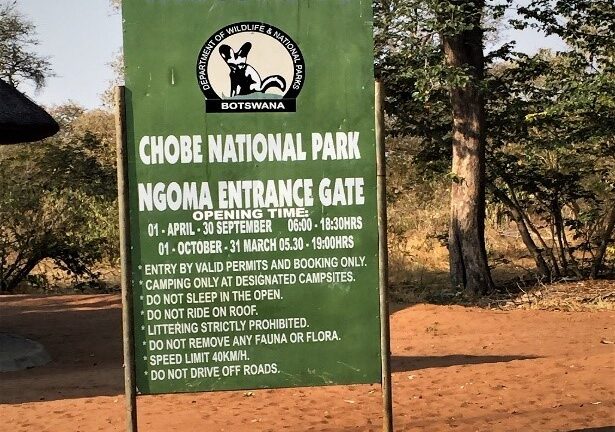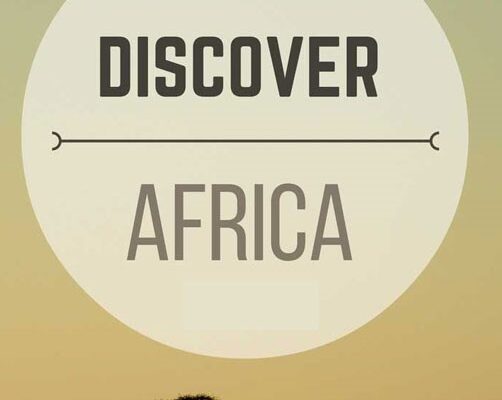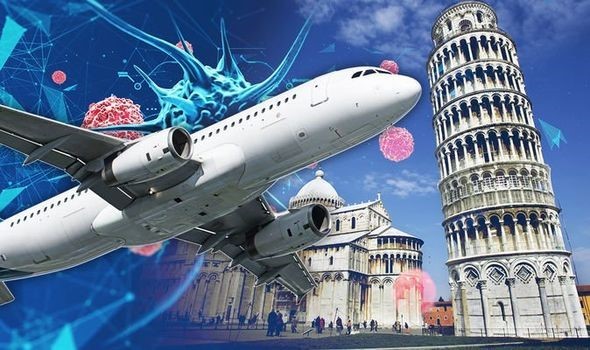Botswana recently reached celebrity status when it was revealed that Prince Harry presented Meghan Markle with an engagement ring from this African country at a (rumored) remote safari camp in the western part of Botswana’s Makgadikegadi Pans National Park.
Why Go
Botswana, a landlocked country in Southern Africa, is home to the Kalahari Desert, the Okavango Delta, the Central Kalahari Game Reserve, the Chobe River and National Park. Travelers anxious to see giraffes, cheetahs, black rhinos, hyenas, wild dogs, crocodiles and the largest herds of elephants on the planet, are asking their travel consultants to arrange their safari to this part of the world.
Nature Needs Half
The country has one of the highest percentages of geography dedicated to conservation – approximately 45 percent of the total land mass. To be considered a protected area, it must be categorized as, “An area of land and/or sea especially dedicated to the protection and maintenance of biological diversity, and of natural and associated cultural resources, and managed through legal or other effective means” (4th World Congress on National Parks and Protected Areas).
Botswana attracts a wide range of international visitors including the US, the British Commonwealth countries, Western Europe, Australia, Japan and Canada. South Africa, and Zimbabwe are also source markets for this unique destination. Tourism accounts for approximately 16.3 percent of GDP.
Visitors love Botswana because of its:
- • Incredible wildlife
- • Beautiful scenery
- • Remote and uncrowded parks
- • Exclusive lodges
- • Efficient (and expensive) ground operators
- • Safety and political stability
- • Friendliness of people
However, visitors should be prepared for inadequate infrastructure, high prices for safaris (government policy – High Quality, Low Impact), and limited air connections with Europe.
Goodbye Zimbabwe. Hello Botswana

On the Move
The drive from Zimbabwe to Botswana is interesting because of what it does not have: there is no roadside commerce…no petrol stations, no restaurants, very little traffic; however, the major issue…limited and challenging toilet facilities.

Passport control at the borders is very basic but can be confusing (even challenging). This is one of the many times your local Guides is critical to a successful travel experience. The guides know the staffers at the borders and are able to facilitate the paper work and fees. Trying to understand the bureaucracy of the system is almost impossible, unless you are experienced in the culture and the process. It is best to hand over your passport to your Guide, along with required fees (in cash), and get through the process as quickly as possible.

The best advice: smile, be polite, and get out of the way; your main mission is to see the wildlife of Botswana…this is what attracted you to this part of the planet in the first place.



Finally. Arrival at Ngoma Safari Lodge
After traveling for hours, it was an incredible relief to see the driver turn off the highway and steer the van onto dirt roads that ultimately led to the Ngoma Safari Lodge. When I preview properties online I am never certain that the published information is entirely accurate. Even reviews on TripAdvisor are suspect. Until I see, hear, touch and smell the product, I hold onto a healthy skepticism.

Excellent News

The Lodge is so perfect that it is difficult to believe that it is in the middle of nowhere. No lodges nearby, no shopping malls (in fact, no shops anywhere), no restaurants and no neighbors. Here is where the rich (and maybe the famous) are able to experience and explore the incredible abundance of Botswana wildlife while enjoying 5+ star luxury – from cuisine and accommodations to warm, friendly and efficient services.

Delighted with arrival and warm greetings from the staff, guests are escorted to the lounge where cool drinks and chilled towels are offered. Administrative paperwork is completed (days/times of departure, Wi-Fi login information, meal time, key control, activities list).
With time for lunch and a visit to spacious, beautifully designed rooms and a shower – it was soon time for the late afternoon visit to the animals.




Time to Visit

Lions, leopards, elephants, black rhinos, hippo, African buffalo as well as wart hogs and meerkats, impalas, zebras and giraffes and many others are likely to be spotted while on safari. The opportunities for sightings depends on weather, month, time of day and lots of good luck.



Midway in the exploration of the national park, as the sun is setting, the van stops and turns into a cocktail bar, complete with sparkling wine from South Africa and small bites.



Then it is back in the van, searching for more wildlife, and a return to the Lodge for drinks and dinner.


Chilly Botswana mornings are perfect for more gourmet dining and breakfast is not only delicious but beautifully presented.

After a very hearty and healthy breakfast, it is time to leave for the morning safari. River-side facilities do not receive 5-star ratings – so make a “pit stop” before heading to the van.

In addition, national parks do not have shops and fast food options, making it necessary to pack your own water, sunscreen, hat, handi-wipes, toilet paper, tissues, cameras, batteries and other amenities that will make life personally comfortable.
Exploring the River-side Wildlife and Chobe National Park





Memorable Weddings and Honeymoons

While it may be complex (lots of paper work and at least 48 hours of your time) for international visitors to get married in Botswana (and questionable for second marriages), it is definitely a fabulous destination for a honeymoon. One suggestion for wedding presents for eco-friendly wedding parties is for guests pay for a rhino to be relocated and released into the wild in Botswana.
Time to Go
Botswana is difficult to leave. There are so many animals to see, parks and rivers to explore, that two nights is seriously insufficient. Considered one of the prime wildlife safari destinations in Africa, Botswana’s tourism industry is built upon photography although its history is clouded with the hunt of trophy hunters. The incredible increase in photographic tourism has, fortunately, ended the hunting industry and it was officially blocked in 2014.
Privacy and wilderness provide the fabric for Botswana tourism and lodges usually accommodation 8-20 guests making it likely to see more game than people. The country is considered to be politically stable and safe for visitors. A current objective of the country is to increase the number of days visitors spend in the country. Currently the stay runs from 7-10 days; however, the tourism office would like to increase the number.

Although it is considered a long-haul destination, Botswana is not difficult to reach with international flights landing in Gaborone or Johannesburg, with connecting flights to safari areas. The major road through the country enables easy transportation by car and van.
Botswana Sustainable Tourism
Botswana has taken a leadership role in re-shaping sustainable tourism. New business opportunities are encouraged, and joint ventures are welcome, especially for hotel expansions and start-ups. In 2016, the partnership between the governments of Botswana, South Africa and Zimbabwe, along with the private sector and local communities met with the objective of creating new opportunities for eco-tourism. Known as the Greater Mapungubwe Transfrontier Conservation Area, the objective is to connect protected areas in Zambia, Botswana, Namibia, Zimbabwe and Angola. It is likely to expand eco-tourism in Botswana and the region.

Now is the time to visit Botswana. Contact your travel counselor and make your reservations now – rather than later.
© Dr. Elinor Garely. This copyright article, including photos, may not be reproduced without written permission from the author. eg@etn.travel, dr.elinor.garely@gmail.com



